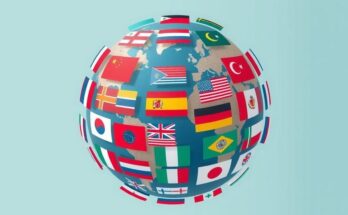President Biden’s meeting with UAE President Mohamed bin Zayed marked a significant step in U.S.-UAE relations, yet discussions on Sudan’s civil war revealed the UAE’s troubling involvement in supporting the Rapid Support Forces (RSF). Despite expressing concern over the humanitarian crisis, the lack of accountability for the UAE’s actions raises questions about the U.S.’s commitment to principled foreign policy amidst geopolitical maneuvering.
United Arab Emirates (UAE) President Mohamed bin Zayed al-Nahyan made a landmark visit to the White House recently, signaling an escalation in U.S.-UAE relations amidst ongoing conflicts in the Middle East. This meeting highlighted new collaborative efforts between the two nations in sectors such as artificial intelligence, space exploration, clean energy, and defense, including the UAE’s designation as a “major defense partner,” a title previously granted only to India. However, the discussions on Sudan’s civil war revealed a stark contrast. Despite the severe implications of the conflict, which has resulted in approximately 20,000 civilian deaths, massive displacement, and impending famines, the official communique dedicated scant attention—less than 250 words—to the situation. Both leaders expressed concern and a commitment to de-escalate the violence, yet omitting reference to the UAE’s own involvement in equipping the paramilitary Rapid Support Forces (RSF) undermines the depth of these concerns. The UAE has been implicated as a principal supporter of the RSF, providing advanced weaponry and intelligence, while denying direct military involvement. Independent investigations have indicated that the UAE’s humanitarian efforts in Chad serve as a façade for its military aid to RSF forces, which have been accused of committing heinous acts, including ethnic cleansing against the Masalit people in Darfur. The ongoing conflict has drawn in other global powers, transforming into a proxy battle between the UAE, Iran, and Russia against the backdrop of geopolitical interests in Sudan’s strategic geographical resources. In this context, while the U.S. administration may seek to fortify its relationship with the UAE as a counterbalance to Iranian influence, it likewise risks undermining its moral stance against the militarization of conflicts. President Biden’s remarks at the United Nations, wherein he urged the cessation of arms to conflict-generating factions, seem at odds with the administration’s tacit acceptance of UAE support for the RSF’s actions. Consequently, this interplay reveals a troubling dichotomy between the need for strategic alliances and the moral imperatives that underpin U.S. foreign policy.
The civil war in Sudan has escalated dramatically, characterized by widespread violence and humanitarian crises. It has caused significant loss of life and displacement, with escalating fears of famine, particularly in regions such as Darfur. In this context, the United Arab Emirates has been accused of exacerbating the conflict by arming one of the principal factions, the Rapid Support Forces (RSF), complicating the international response to the crisis. The recent visit of UAE President Mohamed bin Zayed to the White House signifies a strengthening of U.S.-UAE relations amid this tumultuous backdrop, raising questions about the implications of foreign alliances on domestic conflicts.
To summarize, the meeting between President Biden and President bin Zayed underscores a burgeoning alliance with the UAE; however, this partnership is marred by the UAE’s contentious involvement in Sudan’s civil war. The lack of a robust demand for the UAE to cease its military support for the RSF reveals a troubling inconsistency in American foreign policy, where geopolitical interests may override the urgent need to address human rights violations and the humanitarian crisis in Sudan. As the United States attempts to navigate its strategic partnerships, it must confront the ethical implications of these alliances amid rising global tensions.
Original Source: www.washingtonpost.com




